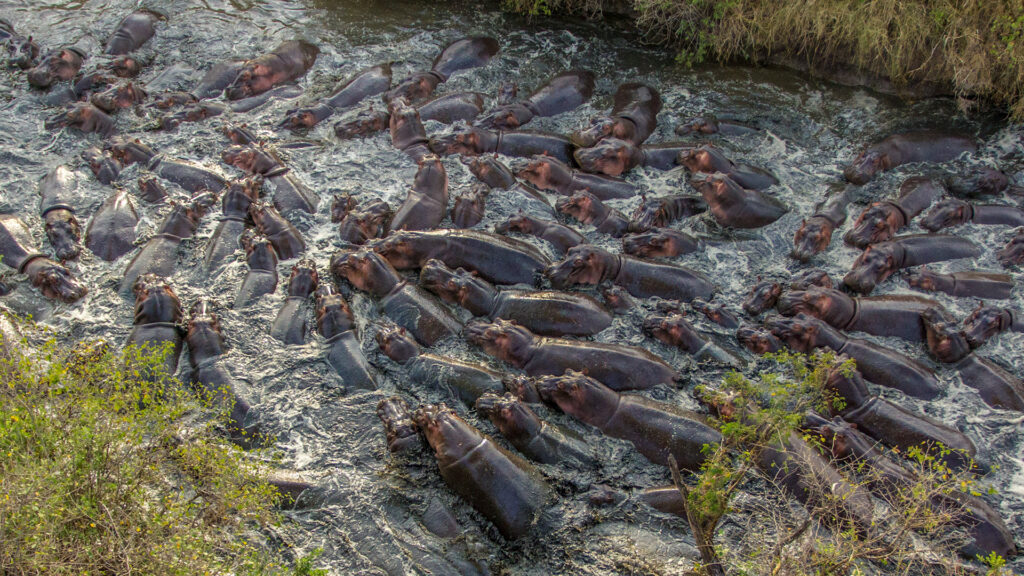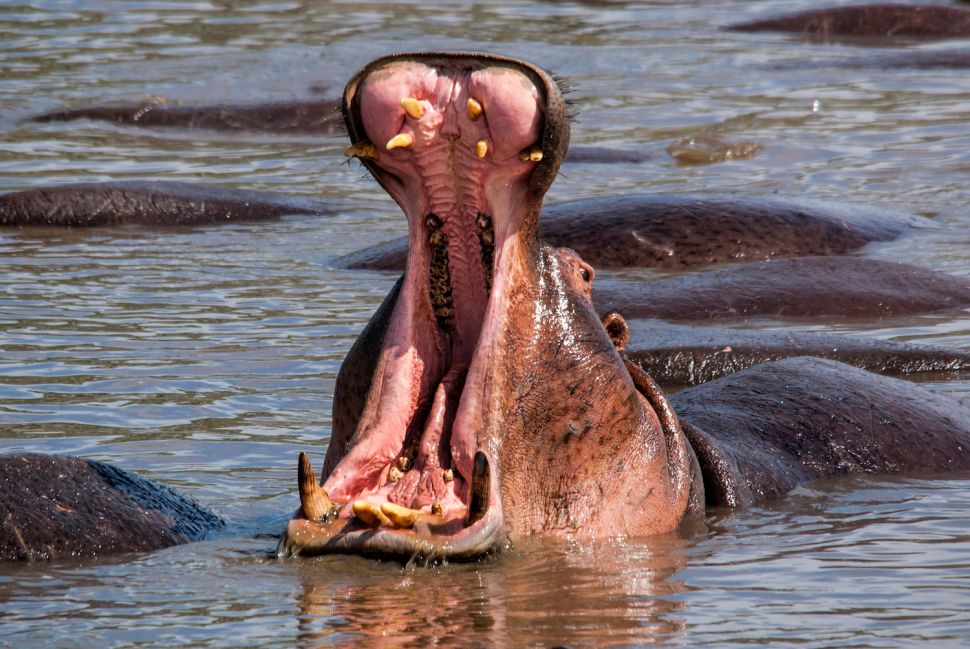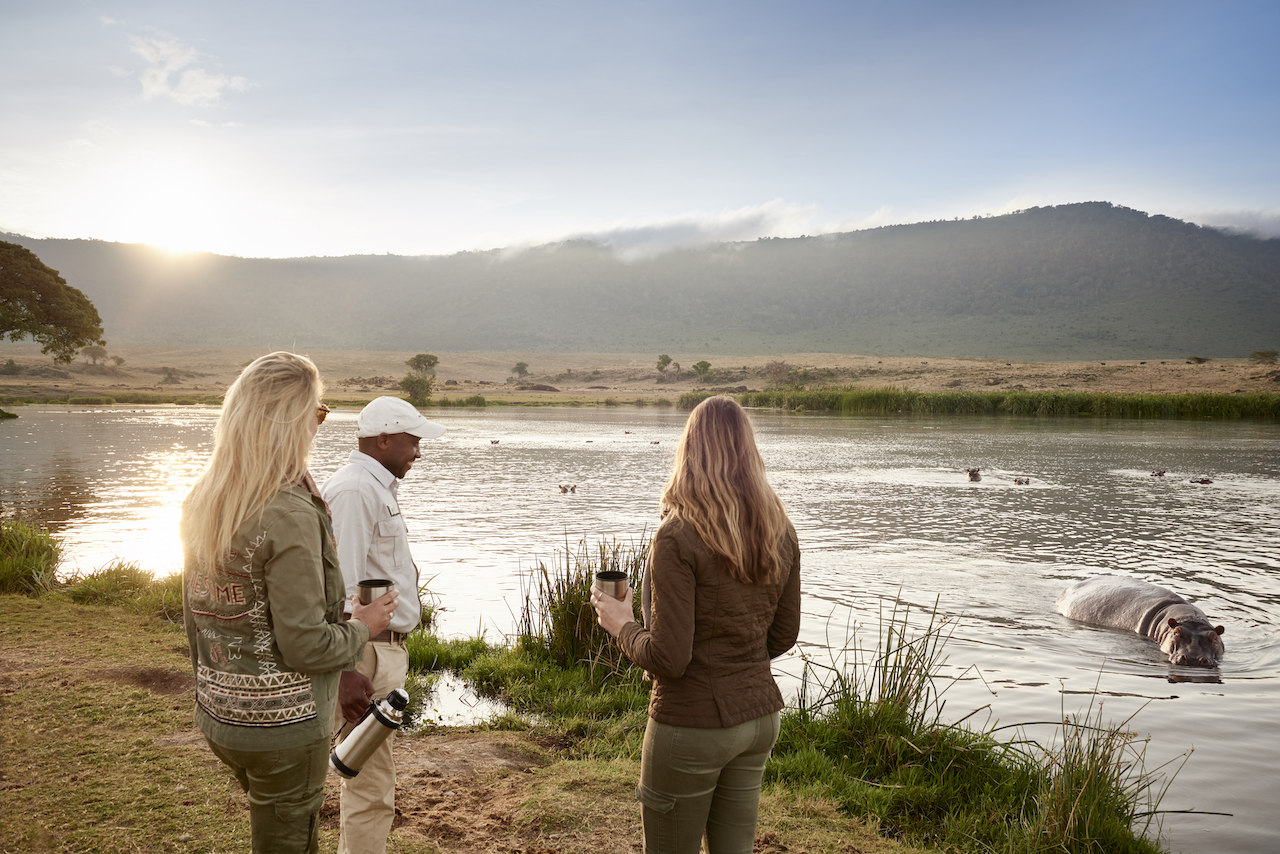Hippopotamuses (Hippopotamus amphibius) are large, round, water-loving animals that are native to Africa. The word “hippopotamus” comes from the Greek word for “water horse” or “river horse,” although hippos and horses aren’t closely related.

Learn some fun facts about these beautiful animals!
We all love hippo and could sit for hours on end watching them interact with one another. The hippopotamus is the third largest land mammal after the elephant and white rhino common live in sub-Saharan Africa. They live in areas with abundant water, as they spend most of their time submerged to keep their skin cool and moist. Considered amphibious animals, hippos spend up to 16 hours per day in the water,
You may be surprised to find out that there is much more to these interesting animals than you think…
- Hippo’s Cannot Swim – We Know, It’s Shocking! Hippos spend pretty much their whole lives in water, so it really doesn’t sound right when you hear that they actually cannot swim. It is true though, the main reason they spend so much time in the water is mainly to protect their extremely sensitive skin from the harsh African sun.
- They Have Incredibly Sensitive Skin If you’ve ever seen a hippo basking in the sun, you may have noticed what seems to be blood dripping from their skin. There is no need to be alarmed though, this substance is, in fact, a built-in “Hippo Sunblock” which is oily and red in color. It not only provides much needed protection from the sun’s rays, but is also an effective moisturizer and germ-killer, too.
- They Cannot Breathe underwater – While they do spend most of their time submerged in water, hippos need to resurface every 3 – 5 minutes to breathe. They even do this when sleeping! The motion of surfacing and breathing through their nostrils is an automatic one, so hippos who are deep in their slumber will still subconsciously rise to the top for a breath of air.
- Hippos can close their nostrils and ears to prevent water from entering. This is why hippopotamus calves can suckle on land or underwater
- Hippos Are Territorial – But Only in Water – Water is a safe-Zone for hippo and two of the most important things in their life takes place in water, mating and giving birth. Most people know that the hippo is an aggressive animal but they are only known to show territorial behavior when submerged. If threatened on land, most hippo will run for cover in water nearby.
- A hippo charges. You can really see the power these creatures hold. What most people see as a yawn is actually a sign of aggression, this is why you only see hippo’s “yawning” when in water as they’re actually showing you how big their teeth are, leaving you to daydream about how they can hurt you.

- They Are Not Big Eaters – considering their humungous size, one would be forgiven for thinking hippos eat a lot, but this is actually not true. A male hippo can weigh anywhere between 1600 kg – 3200 kg and females can weigh between 650 kg – 2350 kg – pretty impressive! Yet they only eat between 1 and 1.5% of their body weight every day.
- Hippo forage for food at night to escape the heat of the day. Hippos forage for food at night – they are herbivores and will eat any plant that comes their way but mainly snack on grass as it’s their favorite. Even though they are surrounded by aquatic plants for most of the day, it is still not understood exactly why hippo do not eat these plants but rather opt to search for food on land. Hippo can walk up to 5 miles in search of food and spend around 5 hours a night grazing.
Be one of the few to explore the destinations we have handpicked for exclusive expeditions in Africa… Email, WhatsApp or DM for enquiries

